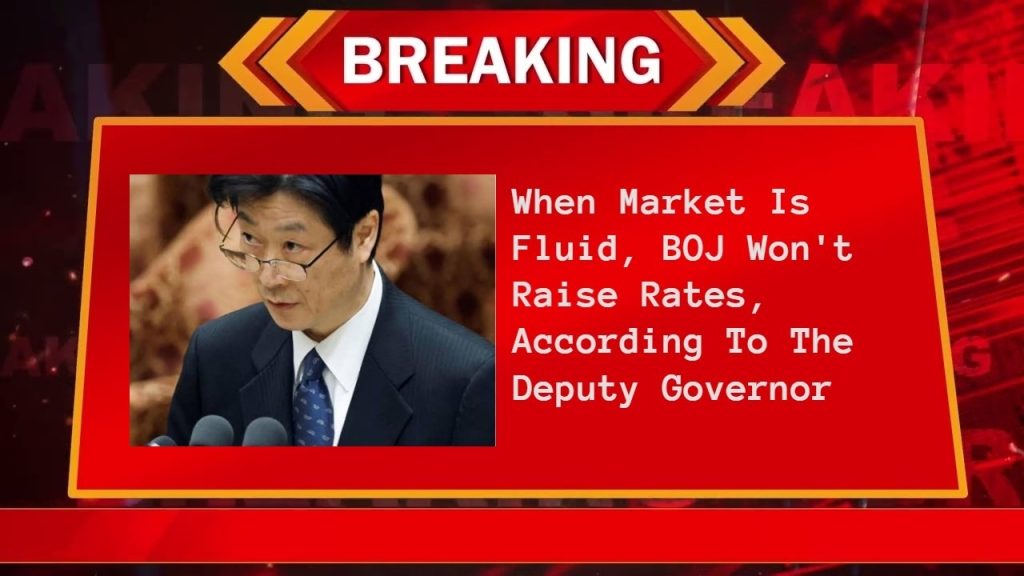Reducing the likelihood of a short-term increase in borrowing costs, the Bank of Japan’s powerful deputy governor stated on Wednesday that the central bank will not raise interest rates when markets are erratic.
The BOJ’s unexpected interest rate hike last week prompted Governor Kazuo Ueda to make hawkish comments that contrasted with Shinichi Uchida’s statements, which helped to drive down the yen and boost Japan’s Nikkei share average.
Market Impacting Central Banks
The BOJ’s rate hike path might “obviously” shift, according to Uchida, if the recent, high market volatility has an impact on the central bank’s pricing and economic estimates, as well as the probability that Japan will sustainably meet its 2% inflation objective.
In a speech to business executives in the northern Japanese city of Hakodate, Uchida stated, “We need to maintain current levels of monetary easing for the time being as we’re seeing sharp volatility in domestic and overseas financial markets.”
Uchida, a prominent central banker who is regarded as the driving force behind the BOJ’s policy decisions, stated at a press conference following the speech, “In my opinion, there are more factors emerging that call for us to exercise caution when hiking interest rates.”
According to Uchida, the recent strengthening of the yen will have an impact on the BOJ’s policy decisions since it lessens the pressure on import prices to rise and, consequently, overall inflation.
Fear Of Recession
He continued by saying that stock market volatility would impact company activities and consumption, which would in turn alter its decisions. “Unlike U.S. and European central banks, we’re not in a situation where we would end up being behind the curve unless we hike interest rates at a set pace,” Uchida stated.
In an effort to gradually phase out a decade of unprecedented stimulus, the BOJ hiked interest rates to levels not seen in 15 years last week and revealed a comprehensive plan to decrease its vast asset purchases.
Indicating the possibility of consistent rate increases in the upcoming years, Governor Ueda stated that the BOJ will continue raising rates if the economy and prices follow its projections.
The hawkish comments contributed to a worldwide market meltdown that saw the yen jump and Japan’s Nikkei average plummet on Monday, along with disappointing U.S. labor statistics that fueled fears of a recession in the largest economy in the world. Since then, traders have reevaluated the timing and tempo of potential rate hikes by the BOJ, which has caused market volatility.

